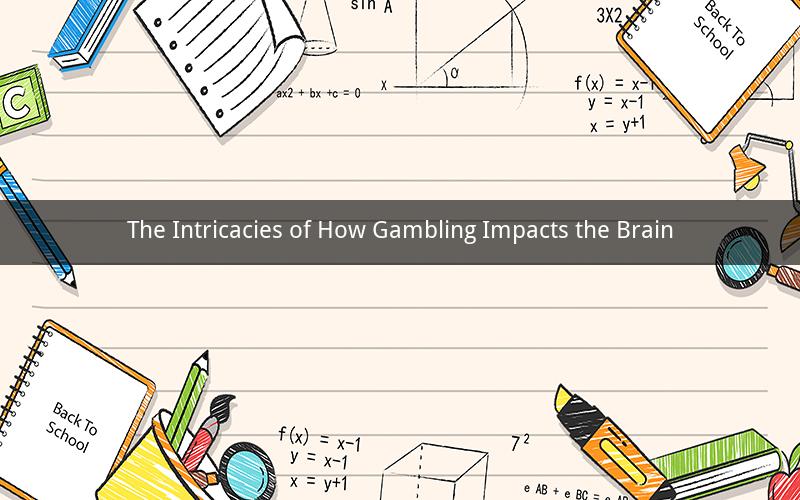
Introduction:
Gambling, an activity that has been around for centuries, continues to captivate individuals across the globe. While it offers excitement and the allure of winning big, the impact of gambling on the brain is a subject of great interest. In this article, we will delve into the intricate ways in which gambling affects the brain, exploring the neural mechanisms involved and the potential consequences.
1. The Dopamine Connection:
One of the primary ways gambling affects the brain is through the release of dopamine, a neurotransmitter associated with pleasure and reward. When a person wins a bet, the brain releases dopamine, creating a feeling of euphoria and reinforcing the behavior. However, when a person loses, the brain experiences a dopamine deficit, leading to feelings of sadness and frustration. This dopamine-driven cycle can make gambling addictive, as individuals seek to recreate the pleasurable experiences associated with winning.
2. The Role of the Ventral Striatum:
The ventral striatum, a region of the brain involved in decision-making and reward processing, plays a crucial role in gambling. Studies have shown that individuals with gambling disorders often exhibit increased activity in this region, particularly when they anticipate a win. This heightened activity suggests that the brain's reward system is hyper-responsive in individuals prone to gambling addiction.
3. The Impact on Cognitive Functions:
Gambling can also have significant effects on cognitive functions. Engaging in gambling activities often requires individuals to make quick decisions and assess risks. However, excessive gambling can impair cognitive functions such as attention, memory, and problem-solving abilities. These cognitive deficits can persist even after a person stops gambling, potentially affecting their daily lives and relationships.
4. The Risk of Developing Psychiatric Disorders:
Gambling addiction is not only associated with changes in the brain's reward system but also with an increased risk of developing psychiatric disorders. Research has shown that individuals with gambling disorders are more susceptible to conditions such as depression, anxiety, and substance abuse. The stress and anxiety that come with gambling can have a profound impact on mental health, leading to a cycle of addiction and psychiatric issues.
5. The Role of Social Factors:
Social factors also play a crucial role in how gambling affects the brain. Engaging in gambling activities with others can increase the intensity of the experience, making it more likely for individuals to develop gambling problems. Additionally, the social validation associated with winning can reinforce gambling behavior, further contributing to addiction.
Questions and Answers:
1. How does gambling affect the brain's reward system?
Gambling affects the brain's reward system by releasing dopamine, a neurotransmitter associated with pleasure and reward. When a person wins, the brain experiences a surge in dopamine, reinforcing the behavior. However, when a person loses, the brain may experience a dopamine deficit, leading to negative emotions and a desire to recreate the pleasurable experiences.
2. Can gambling addiction lead to cognitive deficits?
Yes, excessive gambling can impair cognitive functions such as attention, memory, and problem-solving abilities. These deficits can persist even after a person stops gambling, potentially affecting their daily lives and relationships.
3. What are the potential consequences of gambling addiction?
Gambling addiction can have severe consequences, including financial loss, strained relationships, mental health issues, and even legal problems. It can disrupt an individual's life and lead to a cycle of addiction and dependence.
4. How can social factors contribute to gambling addiction?
Social factors, such as engaging in gambling activities with others and the social validation associated with winning, can contribute to gambling addiction. The intensity of the experience and the reinforcement of winning can make individuals more susceptible to developing gambling problems.
5. Can gambling addiction be treated?
Yes, gambling addiction can be treated through various methods, including therapy, counseling, and support groups. Treatment aims to address the underlying causes of addiction, develop coping strategies, and provide support to help individuals overcome their gambling problems.
Conclusion:
Gambling's impact on the brain is a complex and multifaceted issue. Understanding the neural mechanisms involved and the potential consequences of gambling addiction is crucial for developing effective prevention and treatment strategies. By recognizing the signs of gambling addiction and seeking help, individuals can break free from the cycle of addiction and lead healthier, more fulfilling lives.